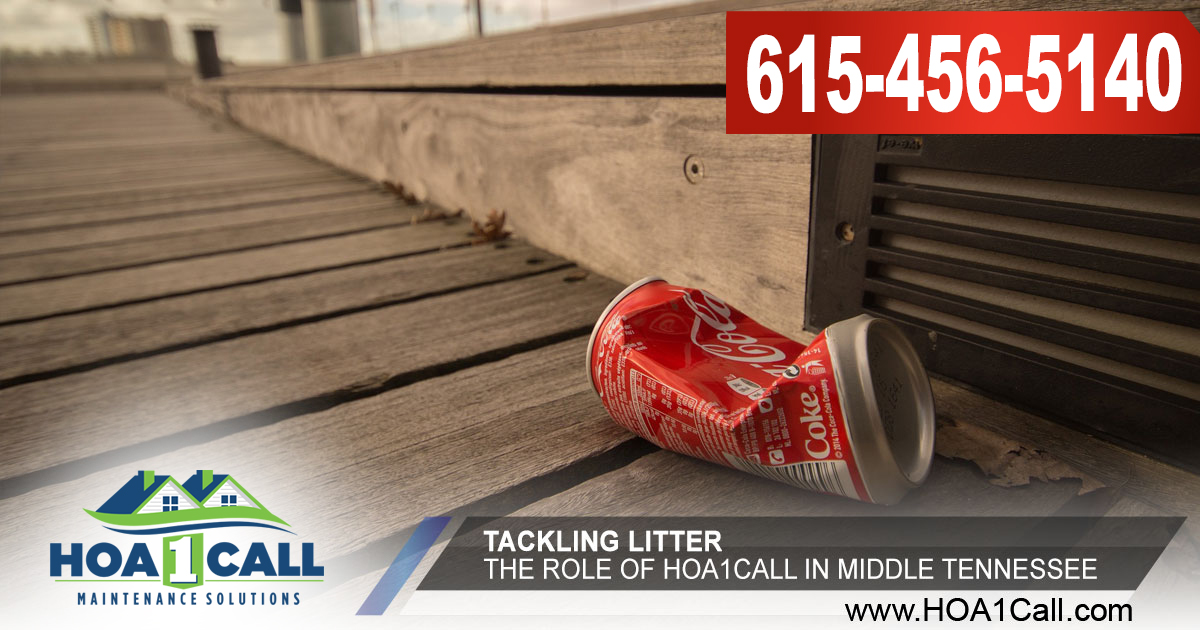Littering is a pervasive problem that extends far beyond mere aesthetic concerns. The act of thoughtlessly discarding waste negatively impacts the environment, human health, and community well-being. In this article, we will delve into the causes and effects of littering, exploring the broader implications for the environment. Additionally, we will discuss the role that organizations like HOA1Call, a Homeowners Association (HOA) contractor company in Middle Tennessee, can play in combating litter and fostering cleaner, healthier communities.
Causes of Littering
Littering often results from a combination of individual behavior, societal norms, and inadequate waste management systems. Common causes include a lack of awareness, carelessness, and a perceived absence of consequences. Individuals may discard items such as plastic bottles, cigarette butts, and fast-food packaging without realizing the cumulative impact on their surroundings.
Moreover, societal attitudes towards littering can contribute to the problem. If littering is normalized or not actively discouraged, people may be less inclined to dispose of their waste responsibly. Additionally, areas with insufficient waste disposal infrastructure may inadvertently encourage littering as there may be a perceived lack of alternatives.
Effects of Littering on the Environment
The environmental consequences of littering are profound and multifaceted. One of the most immediate impacts is the degradation of natural habitats. Litter can alter ecosystems, disrupt wildlife, and introduce harmful substances into the environment. Plastic pollution, in particular, poses a severe threat to marine life, as discarded plastic items can persist for years, breaking down into microplastics that infiltrate water sources.
Litter also has implications for human health. Improperly disposed waste can contaminate air and water, leading to respiratory issues and waterborne diseases. In addition, littering contributes to soil pollution, affecting agricultural productivity and food safety.
Furthermore, the economic toll of littering is significant. Local governments spend substantial resources on cleaning and maintaining public spaces, funds that could be better allocated to community development initiatives. The tourism industry, a vital source of revenue for many regions, can suffer due to unsightly litter, deterring potential visitors.
How Littering Affects the Community
Littering extends its impact beyond the immediate environment, affecting the overall quality of life within a community. Aesthetic degradation can lead to a decrease in property values, and the presence of litter may discourage community engagement and outdoor activities. In turn, this fosters a sense of apathy and disconnection among residents.
Public spaces are essential for community gatherings and recreational activities. When litter accumulates, these spaces become less inviting and enjoyable, eroding the sense of pride and belonging that defines a thriving community. Addressing the issue of littering is, therefore, not only an environmental imperative but also a crucial step towards building stronger, more resilient communities.
The Role of HOA1Call in Combating Litter
HOA1Call, a leading HOA contractor company in Middle Tennessee, recognizes the importance of a clean and well-maintained community. They play a pivotal role in addressing littering issues within residential areas by implementing proactive measures. This may include organizing community clean-up events, educating residents about responsible waste disposal, and implementing efficient waste management systems.
By partnering with local communities, HOA1Call fosters a sense of shared responsibility, encouraging residents to take pride in their surroundings. Their expertise in landscaping and community maintenance positions them as valuable allies in the fight against litter, contributing to the creation of aesthetically pleasing and environmentally sustainable neighborhoods.
